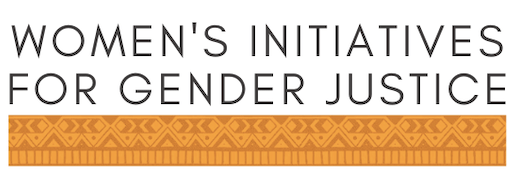Democratic republic of Congo
Our work within the Democratic Republic of the Congo
WI has been working in eastern DRC since 2006. We began with documenting conflict-related sexual and gender-based crimes and have since expanded our programmes and partnerships across three provinces – North Kivu, South Kivu and Province Orientale. With over 145 local members (organisations and networks) and five provincial and thematic focal points, WI is deeply committed to and embedded in working with local communities in response to the ongoing militarized violence and conflict situation in eastern DRC.
Our methodology is to partner with local women’s rights advocates and organisations to design and implement grassroots programmes advocating for peace, accountability for sexual and gender-based crimes, better responses for victims/survivors and a deeper understanding of the impact of conflict on women and girls.
Our current programmes include: documenting conflict-related SGBCs for the purpose of supporting and advocating for prosecutions for these crimes before the ICC and domestic courts; a Transit House Project supporting over 800 SGBV victims/survivors per year to access medical and psychosocial support of whom 85% require and receive surgeries for rape-related injuries; advocacy events and screenings of our gender-justice documentary – Our Voices Matter – with decision-makers, justice-sector actors, cultural leaders, conflict-affected communities and victims/survivors; and advocacy with national decision-makers, government ministries, parliamentarians, the Presidential Adviser on Conflict-related Sexual Violence and Child Recruitment to promote gender justice.
Monitoring and Training
During 2004 and 2005 we monitored the continuing conflict and the ICC investigations in the Democratic Republic of the Congo (DRC).
In January 2005, the Women’s Initiatives for Gender Justice conducted a Gender Training Seminar for the ICC Investigation Team for the DRC on the investigation of gender based crimes, effective interviewing of victims/witnesses of sexualized violence, psycho-social issues for survivors of sexual violence, and political and historical aspects of the conflict in eastern Congo.
Outreach
During 2005 we produced outreach resources in French – Rights and the Rome Statute – on the rights of victims and witnesses under the Rome Statute for distribution in the DRC particularly the eastern regions where the ICC is focusing its investigations. Information Card Series: Rights and the Rome Statute
Rights and the Rome Statute (pdf)
We raised awareness of the issues for child soldiers, particularly girl soldiers in the conflict in the Congo. In March 2005 we collaborated at a forum to highlight gender issues for children in conflict situations especially girl soldiers.
In December 2005 the Women’s Initiatives for Gender Justice along with the Faith and Ethics Caucus of the CICC and AJEDI-KA/Project Enfants Soldats (DRC) hosted the launch of a documentary on justice for child soldiers in the DRC which includes interviews with girl soldiers. The documentary Duty to Protectwas produced by AJEDI-KA/Project Enfants Sol
Other Activities in the DRC in 2006-2008
- Translation of Rights and the Rome Statute Information-Card series into Swahili.
- Continue to liaise with local and international NGOs on the conflict and continue to monitor the ICC’s investigations.
- Advocate for inclusion of gender based crimes in the ICC indictments.
- Training for women’s groups in the DRC on the Rome Statute; the rights of victims and witnesses; domestic implementation of the international gender standards established by the Rome Statute; supporting the capacity of women’s groups working with victims/survivors of gender based crimes, and sustaining themselves and their communities during conflict.
- Development of a communication strategy for informing and consulting women in the DRC on developments at the Court at the time of indictments, issuing of arrest warrants, the pre-trial stage and the initiation and progress of trials.
- Co-organise with local women’s NGOs, a Community Forum for women to assess the outcomes for justice provided by the ICC; to assess the impact of the Court on the situation in the DRC; assess the effectiveness of the Court as an institution providing accountability for perpetrators of egregious crimes specifically gender based crimes; assess what has been gained for the women in the DRC through the work of the ICC; and identify the most pressing issues for women in terms of justice, rehabilitation and re-settlement, education and promoting women’s human and legal rights.
